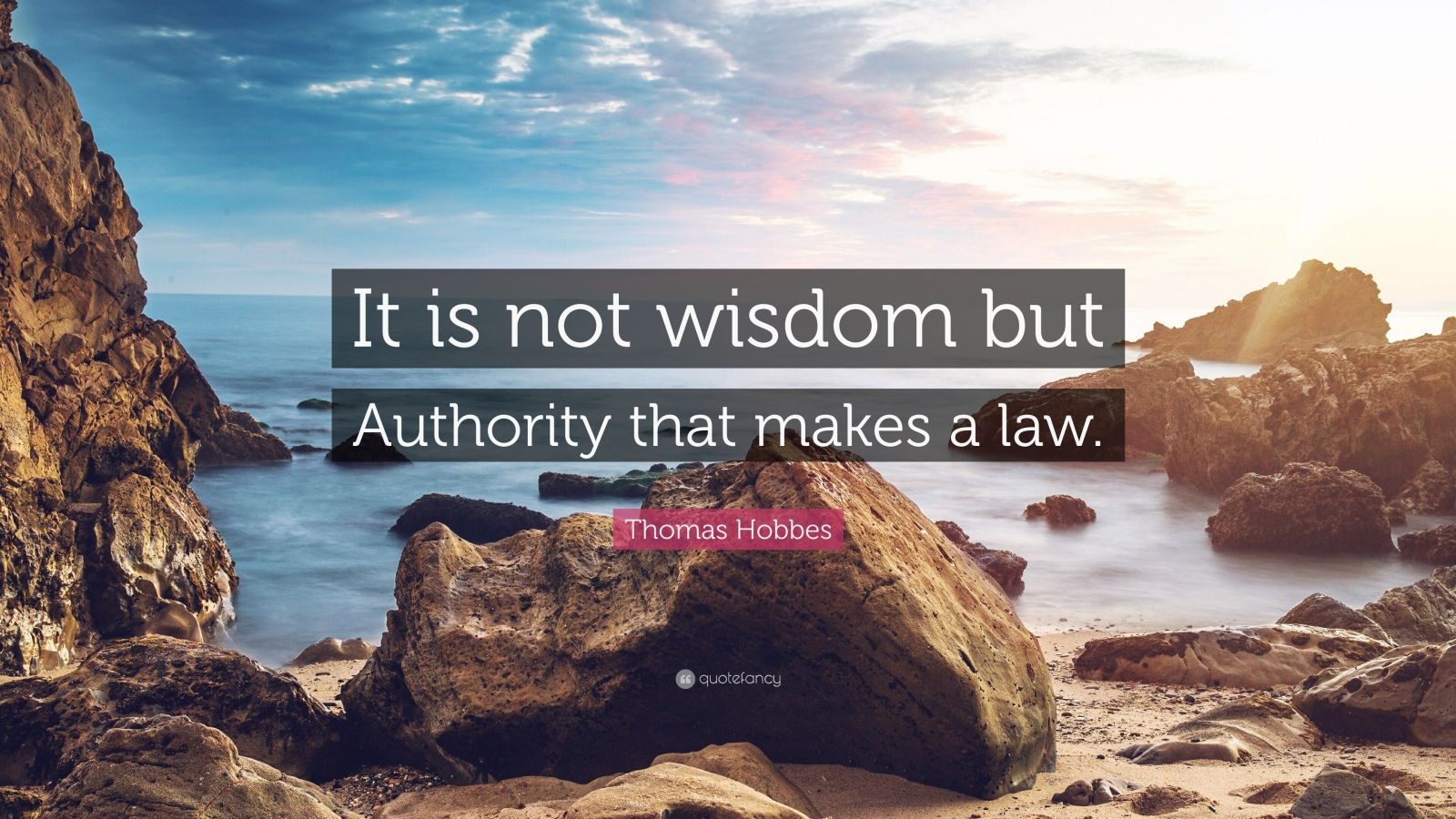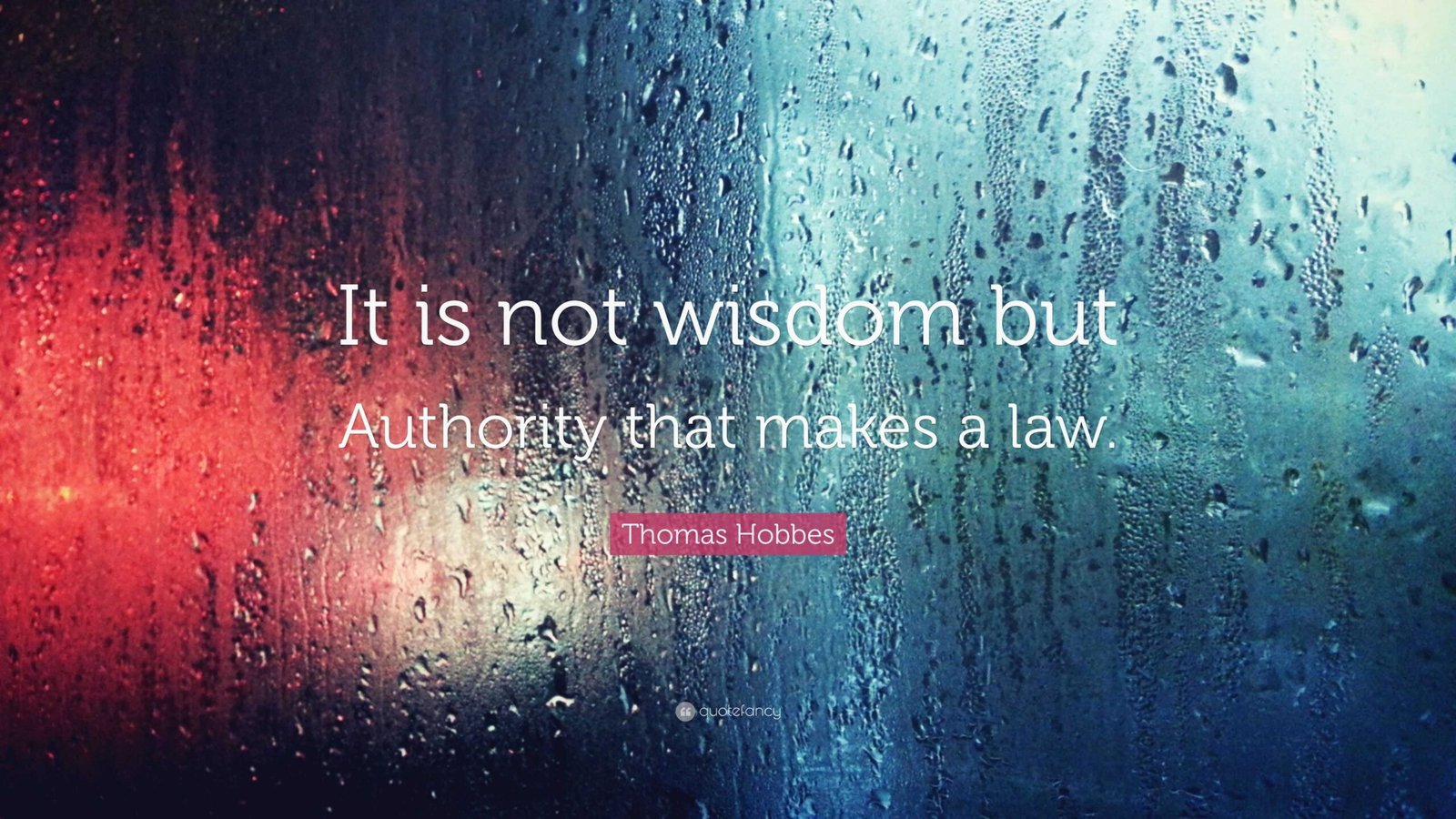best It is Not Wisdom but Authority that Makes a Law” – T. Tymoff’s In the intricate web of governance and legal systems, the relationship between wisdom and authority has long been a subject of contemplation and debate. T. Tymoff, a notable thinker, has provocatively posited that “It is not wisdom but authority that makes a law.” This assertion challenges conventional notions and invites us to delve into the depths of legal philosophy. In this article, we will explore best It is Not Wisdom but Authority dissecting the interplay between wisdom and authority in the context of law.

The Dichotomy of Wisdom and Authority:
Tymoff’s statement prompts us to reconsider the traditional belief that wisdom is the primary determinant of just and effective laws. Wisdom, often associated with sagacity and profound knowledge, implies a discerning ability to make sound judgments. On the contrary, authority is the legitimate power to enforce obedience, irrespective of the intellectual prowess of the wielder. The dichotomy lies in whether the foundation of a law is rooted in the wisdom of its creators or in the authority vested in them.
must read= best Not Wisdom
Authority as the Pillar of Legal Systems: best It is Not Wisdom but Authority
Tymoff’s proposition suggests that authority plays a pivotal role in the formulation and enforcement of laws. In many legal systems, laws are enacted by authoritative bodies, such as legislatures or governing bodies, backed by the sovereign power of the state. This authority, grounded in the consent of the governed, is the bedrock upon which laws are erected. It provides a framework for societal order and stability, often transcending the need for individual wisdom.
The Rule :best It is Not Wisdom but Authority
Central to Tymoff’s perspective is the concept of the “rule of law,” where the authority of legal principles takes precedence over individual discretion. In a society governed by the rule of law, everyone, including those in positions of power, is subject to the law’s authority. This ensures a fair and impartial legal system that is not solely dependent on the wisdom of individuals but rather on the authority vested in the legal framework.

Potential Pitfalls of Overemphasizing Wisdom: best It is Not Wisdom but Authority
Tymoff’s assertion raises questions about the potential pitfalls of overemphasizing wisdom in the creation of laws. Wisdom, though valuable, can be subjective and influenced by personal biases. Depending solely on the wisdom of individuals to shape laws may lead to inconsistencies and inequities. Authority, in contrast, provides a standardized and enforceable structure that transcends the idiosyncrasies of individual wisdom.
The Intersection of Wisdom :best It is Not Wisdom but Authority
While T. Tymoff argues for the primacy of authority in law, it is crucial to recognize that wisdom and authority are not mutually exclusive. Ideally, a harmonious intersection between the two should guide the legal landscape. Wisdom can inform the creation of just laws, offering insights into the complexities of human behavior and societal needs. Simultaneously, authority ensures the legitimacy and enforceability of these laws.
The Evolving Nature : best It is Not Wisdom but Authority
As societies evolve, so too do the definitions and sources of wisdom and authority. Wisdom may be derived from diverse sources, including cultural values, scientific advancements, and collective experiences. Similarly, the authority to create and enforce laws may be distributed across various institutions, reflecting a more decentralized and inclusive approach. Tymoff’s assertion challenges us to adapt our understanding of these concepts to the dynamic nature of governance.

Conclusion: best It is Not Wisdom but Authority
T. Tymoff’s assertion, “It is not wisdom but authority that makes a law,” sparks a thought-provoking exploration of the intricate relationship between these two concepts in the realm of legal philosophy. While wisdom undoubtedly contributes to the formulation of just laws, authority provides the necessary structure for their creation and enforcement.
The synergy between wisdom and authority is essential for a robust and equitable legal system, ensuring that laws are not only wise but also wield the legitimate power needed to maintain societal order. As we navigate the complexities of governance, it is imperative to strike a balance between these two pillars, acknowledging the nuanced interplay that shapes our legal landscape.




